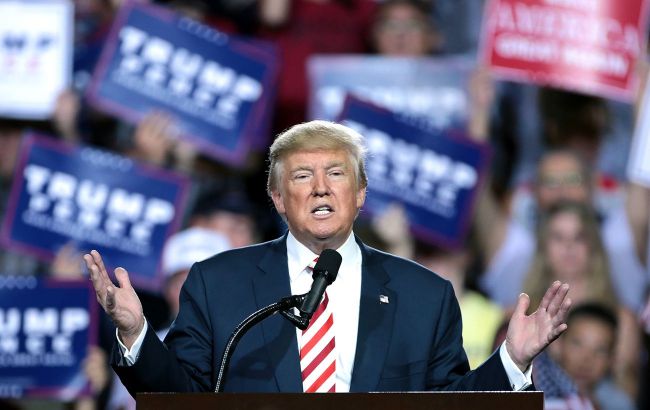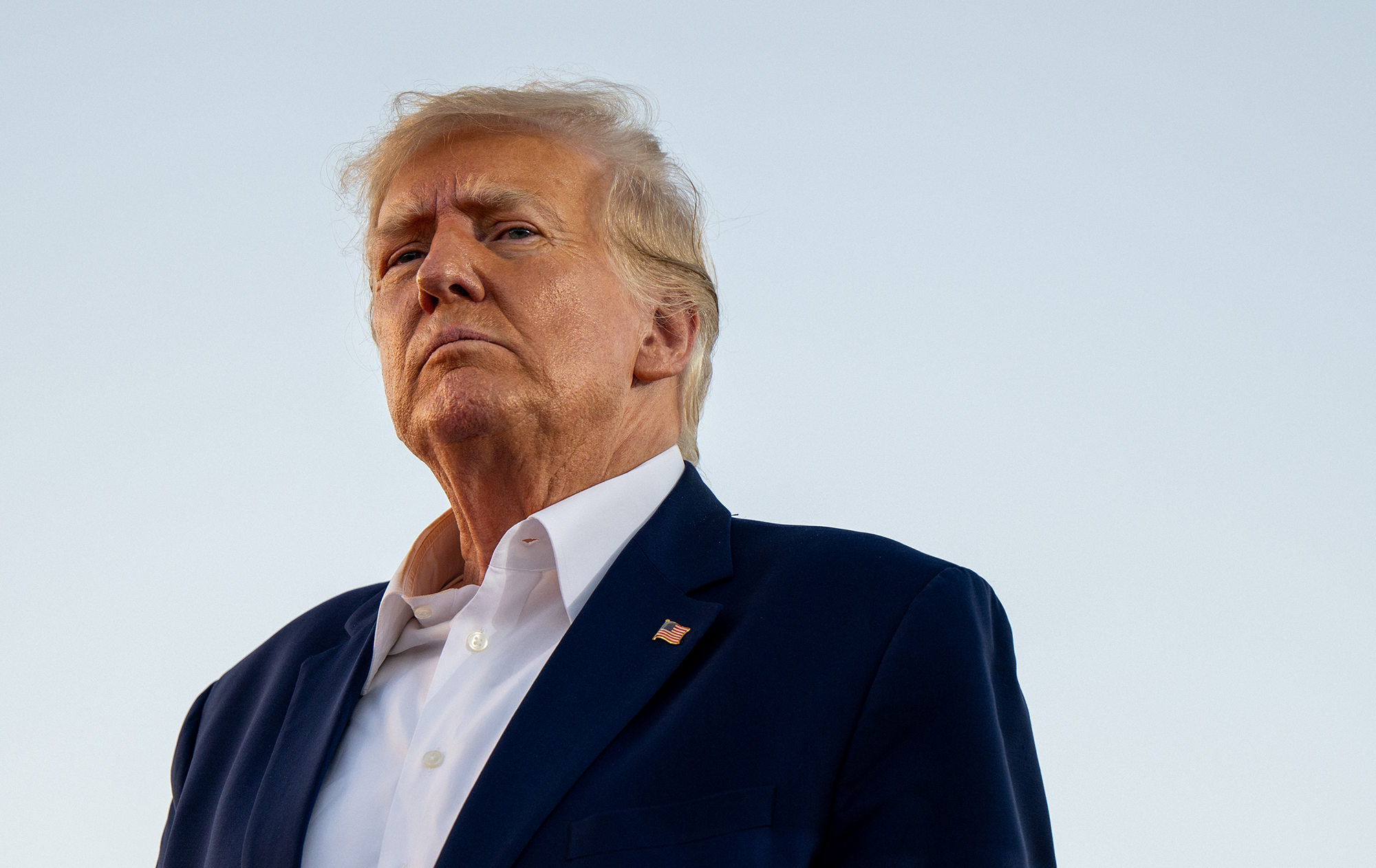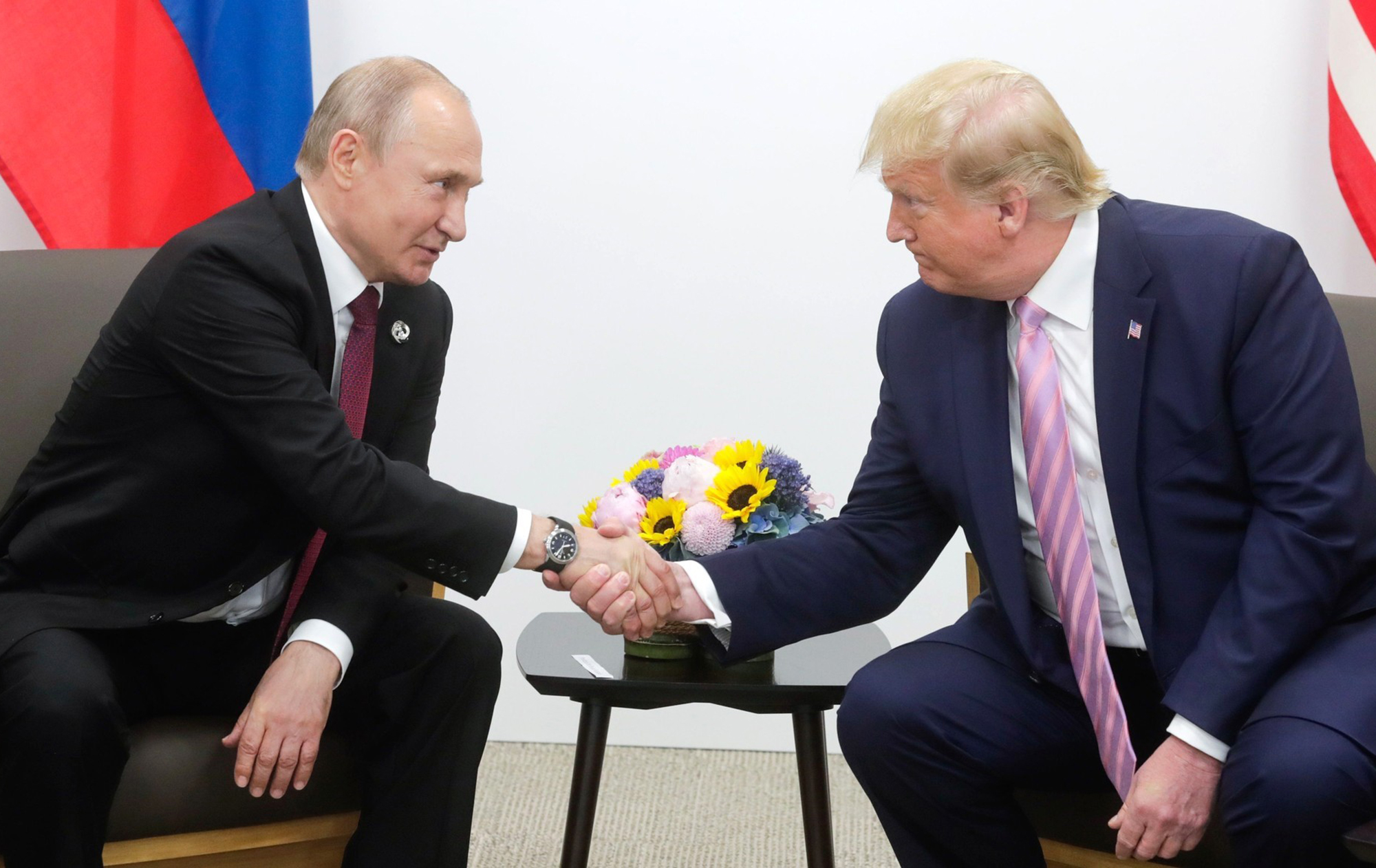Quick-fix plan: How Trump aims to end war in Ukraine and whether it might work
 Donald Trump's plan for Ukraine may include territorial concessions and more (photo by Getty Images)
Donald Trump's plan for Ukraine may include territorial concessions and more (photo by Getty Images)
Donald Trump’s so-called plan for Ukraine appears to be taking shape. Yesterday, his vice-presidential candidate J.D. Vance outlined potential key points, which amount to a freezing of the war and essentially to a political capitulation. For more details on Trump’s plan and why it might not suit Ukraine, see the material by RBC-Ukraine.
Contents:
- Trump's plan for Ukraine: What he says and what he doesn’t
- What Trump’s plan might look like: J.D. Vance’s version
- Why the details have emerged now and whether Ukraine will agree to it
“I want everybody to stop dying. They’re dying. Russians and Ukrainians. I want them to stop dying. And I’ll have that done in 24 hours,” Trump stated in May 2023. Commenting on how it is possible to stop the war in a day, he said that he would meet with Putin and Zelenskyy. "I'll meet with Putin, I'll meet with Zelenskyy, they both have strengths and they both have weaknesses and in 24 hours it will be done," he said.
Since then, the statement has been repeated many times during the election campaign. In the summer, Trump's communications director Stephen Cheung emphasized that Trump's main priority in a second presidential term would be to swiftly negotiate an end to the Russian-Ukrainian war. The issue is that the candidate consistently avoids answering whether he wants Ukraine to win, which clearly hints at a willingness to disregard Ukrainian interests.
Trump's plan for Ukraine: What he says and what he doesn’t
Rumors about the so-called Trump plan began circulating in November 2023. At a meeting with a delegation from the European Council on Foreign Relations, his former White House aide Michael Anton described the anticipated outlines: concessions to Russia over Crimea and Donbas, a block on NATO expansion, and separation of Putin from China, according to The Washington Post. Anton later denied knowing anything about a plan for Ukraine.
In his public promises to end the war, Trump demonstratively hides details about how he would conduct negotiations with Russian and Ukrainian leaders.
In March, Trump said that he would tell each of them certain things that he would not tell the rest of the world, and therefore he could not say more.
This silence about negotiation tactics has allowed others to fill in the gaps. For example, Hungarian Prime Minister Viktor Orbán claimed that in a private conversation, Trump said he would end the war by not giving a penny in aid to Ukraine. Orbán's statement was false, but the former President did not publicly contradict him, according to WP.
According to the agency, in April, Trump said privately that people in some parts of Ukraine might be willing to become part of Russia. His proposal is to force Ukraine to cede Crimea, Donetsk, and Luhansk regions.
In June, two of his key advisers, Keith Kellogg and Fred Fleitz, presented a plan to end the war. It includes warning Kyiv of halting arms supplies if it does not enter peace talks and issuing an ultimatum to Moscow that refusal would lead to increased support for Ukraine. The plan also calls for a ceasefire based on the front lines at the time of negotiations.
Trump responded positively. "I'm not claiming he agreed with it or agreed with every word of it, but we were pleased to get the feedback we did," Fleitz noted. According to the agency by the think tank where Kellogg and Fleitz hold leadership positions, to encourage Putin, the US may put Ukraine's NATO membership on hold.

Donald Trump does not rule out territorial concessions to Russia (Getty Images photo)
A few days before a debate with Joe Biden, the Republican candidate stated that he did not support the Kremlin’s conditions for ending the war. However, this was said under pressure from moderators, and Trump soon after blamed Biden for Russia’s invasion of Ukraine.
"I have a certain idea, maybe not a plan, but an idea for China. But I can’t give you those plans because if I give you those plans, I’m not going to be able to use them, they’ll be very unsuccessful. Part of it is surprise," Trump said last week on a podcast with Russian-born blogger Lex Fridman.
During a debate with Democratic candidate Kamala Harris, the former President repeated his familiar line about having good relations with Putin and complained that Biden had never called him in two years. But from a geopolitical perspective, the most troubling statement was the one Trump didn’t make. When the moderator asked if Trump wanted Ukraine to win the war, instead of a simple answer, he said, "I want the war to stop." The audience has the right to interpret this as a "no."
Trump continued to claim that if elected, he would end the war before his inauguration. Given that he has not explained how he would achieve this seemingly impossible feat, the only way would be to force President Volodymyr Zelenskyy to agree to Putin's terms, whatever they may be, believes historian, analyst, and leading authority on armed conflicts Max Boot.
In his opinion, the recent debates disproved Trump’s primary foreign policy argument: that he is the only tough enough leader to stand up to dictators. Anyone who watched the broadcast could see that he appeared emotional and unpredictable. And if he gets unstuck under the arguments of the less experienced Harris, his ability to negotiate with Putin is highly questionable.
This is especially true following the statements of his vice-presidential candidate, J.D. Vance. The day before, Vance shared his vision of Trump’s plan, which essentially could mean Ukraine's capitulation.
What Trump’s plan might look like: J.D. Vance’s version
During an episode of The Shawn Ryan Show podcast, Vance briefly described what he believes are the causes of the war. According to him, Russia is allegedly fighting for natural gas deposits in Crimea and other Ukrainian resources. He is also convinced that the fighting continues only because the West is profiting from it.
He mentioned companies like BlackRock (the largest investment firm) and institutions that, according to him, are ready to spend billions on Ukraine’s reconstruction. He also emphasized the significant rise in defense companies' stocks since the war began.
Vance stressed that Russia’s decision to invade was a major mistake. He added that Russia “should not have invaded” Ukraine but “Ukrainians have got a lot of corruption problems, too.” It’s worth noting that Vance has long been known for his anti-Ukrainian sentiments.
The vice presidential candidate suggested what Trump’s plan might look like. The key points are as follows:
- The line of contact would become a demilitarized zone.
- Ukraine retains its state sovereignty.
- Russia receives guarantees that Ukraine won’t join NATO.
- Europe should finance Ukraine’s reconstruction
"So I think it goes like this: Trump sits down, he says the Russians, the Ukrainians, the Europeans: you, guys, need to figure out what a peaceful settlement looks like. And it will probably look like the current line of demarcation between Russia and Ukraine," said Vance.

J.D. Vance believes that Trump's plan may include freezing the front line, creating demilitarized zones, and refusing to allow Ukraine to join NATO (photo by Getty Images)
Vance suggests that the demilitarized zone should be heavily fortified, but he did not clarify who would control it or how heavily fortified it would need to be to prevent future Russian aggression. Essentially, this implies not ending the war, but freezing the conflict. Another key issue is that Ukraine currently controls part of the Kursk region. This indicates that Vance is at least disconnected from the realities on the battlefield, says Oleksandr Musiienko, head of the Center for Military-Legal Research.
“The plan closely resembles Chinese initiatives, where the main goal is a ceasefire along the front line. This is strange, as Vance often criticizes China. The proposed initiatives are a hastily constructed scenario. Trump would simply tell Putin and Zelenskyy to stop fighting, and the war would supposedly end. This shows that Vance still does not understand the nature of the conflict and does not consider international law or security guarantees for Ukraine,” Musiienko told RBC-Ukraine.
Tying sovereignty to a rejection of NATO membership only reinforces Vance’s misconceptions. "Russia would get a guarantee of neutrality from Ukraine, meaning it wouldn’t join NATO or other allied institutions," he said, adding that Russia, Ukraine, and Europe want the war to end, while also criticizing European countries for underfunding the war.
It’s worth noting that, according to the Kiel Institute for the World Economy, as of June 30, European countries with significantly smaller economies have together spent more than the United States. The US ranks 22nd in aid to Ukraine (relative to the size of its economy).
Commenting on the demilitarized zone, military-political analyst of the Information Resistance group Oleksandr Kovalenko emphasized that it could provide security, but only if it runs through Russian, not Ukrainian, territory.
“What Vance is proposing is nonsense that would satisfy neither side. It wouldn’t satisfy Ukraine because it doesn’t guarantee security, a return to the 1991 borders, and so on. And it doesn’t benefit Russia, which still believes it can dictate its own ultimatum. If this is really Trump’s plan, it’s unworkable. It’s just a simple fiction,” Kovalenko said.
Why the details have emerged now and whether Ukraine will agree to it
What Vance voiced is not a big surprise, says Vladyslav Faraponov, head of the Institute of American Studies and an analyst at Internews-Ukraine. For example, the point about freezing the frontline fits into Trump’s concept of preventing World War III and, in general, his approach to making deals.
"But this was said in the context of hypotheses; it’s not certain that things will necessarily happen this way. It’s one of the options that is relatively frequently mentioned by those analyzing what Trump might propose if he becomes President," emphasized the analyst

Donald Trump assumes that Vladimir Putin wants to negotiate, but this is a questionable thesis (photo by Getty Images)
The fact that the details of the plan have begun to emerge now is due to the presentation of Zelenskyy's victory plan to President Joe Biden scheduled for September, Kovalenko said.
Today, the Ukrainian leader confirmed that in September he will present a system of interconnected decisions, which will give Ukraine sufficient strength to put the war on a path to peace. Besides Biden, the plan will also be shown to Trump and Harris. For more details, read the material by RBC-Ukraine.
According to Kovalenko, Trump is trying to raise his ratings after losing debates. His plan is something that supposedly he has but Kamala Harris does not.
"Harris hasn’t presented her own plan; we haven’t seen it. She avoids questions about Ukraine or answers them with uncertainty. Trump wants to play on this, especially with Zelenskyy coming to the US. And Harris, who doesn’t have a plan, may choose Zelenskyy's plan," he added.
Military experts interviewed by RBC-Ukraine tend to agree that the provisions voiced by Vance are inadequate. Therefore, under no circumstances will Ukraine agree to something that would be seen domestically not as a victory but as a capitulation.
Faraponov, for his part, highlights the main weakness of Trump’s plan.
"Ukraine lacks specifics on how Trump plans to pressure Putin if he refuses to negotiate. Trump assumes that the Russian dictator supposedly wants to negotiate, which is a questionable thesis. We haven’t heard anything from Trump on this, so we can’t assess his plan concretely. Although I think it doesn’t matter much to the Ukrainian authorities who initiates the negotiations, what matters most are the conditions," he added.
Sources: statements from Donald Trump, his vice-presidential candidate J.D. Vance, Ukrainian President Volodymyr Zelenskyy, materials from The Washington Post, Reuters, comments from military experts Oleksandr Kovalenko and Oleksandr Musiienko, as well as Vladyslav Faraponov, head of the Institute of American Studies and an analyst at Internews-Ukraine.

